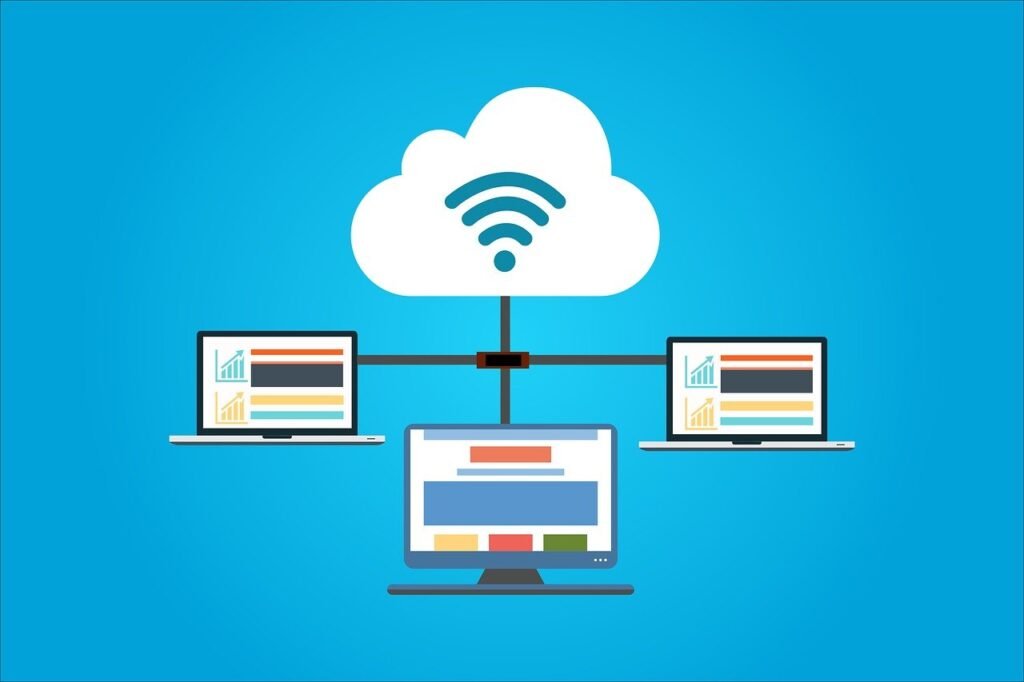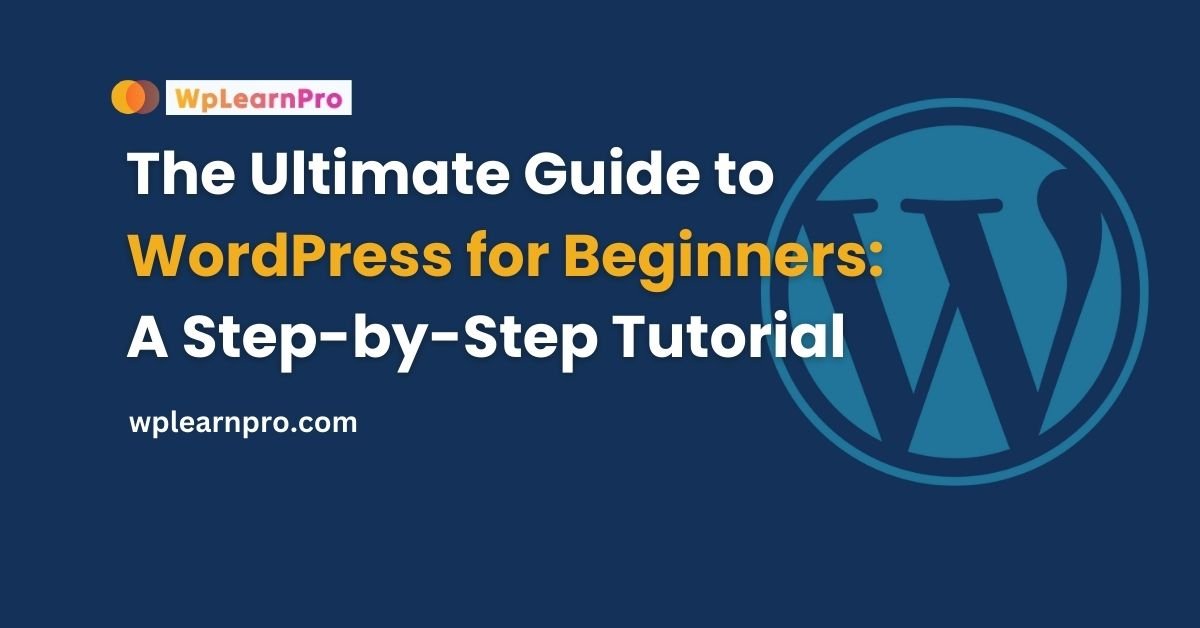If you’re new to website building, you’ve come to the right place. This WordPress for beginners guide will walk you through the steps to create your own website from scratch.
Whether you want to share your thoughts with the world, start an online store, display your artwork, or establish an online presence for your business, WordPress is your gateway to the digital world.
WordPress is a free and popular CMS, an open-source content management system (CMS) that helps creating and managing a website easily.
It is the most popular CMS in the world, powering over 43% of all websites.
WordPress is used by a wide range of people, from individuals and small businesses to large enterprises.
This guide will walk you through the process of creating a WordPress website, from buying a domain name and hosting to installing WordPress and customizing your site.
We will also cover some tips for beginners, such as choosing a reliable web hosting provider and keeping your WordPress software up to date.
Table of Contents
ToggleIntroduction
WordPress has revolutionized the way people create and manage websites. It’s the go-to platform for bloggers, entrepreneurs, and businesses looking to establish an online presence.
Whether you want to share your thoughts with the world, promote your products, or create a personal portfolio, WordPress offers an intuitive and versatile solution.
In this comprehensive guide, we’ll take you from a beginner’s level to a proficient user, helping you unlock the full potential of WordPress.
By the end of this journey, you’ll be able to create stunning websites, manage content like a pro, and leverage the power of WordPress for various purposes. Let’s dive in!
Understanding WordPress for Beginners
WordPress is a user-friendly platform designed with beginners in mind. It’s a versatile tool that caters to various needs, making it the ideal choice for those just starting. Let’s explore why “WordPress for beginners” is the perfect combination.
What is WordPress?
WordPress is a Content Management System (CMS) that simplifies website creation and management. Originally launched as a blogging platform, it has evolved into a versatile tool that powers over 40% of all websites on the internet.
What sets WordPress apart is its user-friendliness and extensive ecosystem of themes and plugins, allowing users to customize their websites to their heart’s content.

Why WordPress for Beginners?
At its core, WordPress is a tool that helps you build websites. It’s designed to be user-friendly, making it a perfect choice for beginners. Let’s dive into why WordPress is the right choice for newcomers.
User-Friendly:
WordPress doesn’t require coding skills. Beginners can create and manage websites without technical expertise.
When it comes to creating and managing websites, you don’t need to be a tech guru. WordPress simplifies the process, allowing beginners to navigate with ease.
A Platform for Everyone
Are you a blogger, an aspiring e-commerce entrepreneur, an artist, or a small business owner? WordPress can adapt to your unique requirements and aspirations.
Versatility:
Whether you’re a blogger, an e-commerce entrepreneur, an artist, or a business owner, WordPress adapts to your needs.
Cost-Effective:
Many WordPress features and resources are free or budget-friendly, making it accessible to everyone.
Creating an online presence shouldn’t drain your finances. WordPress offers a wide array of free and cost-effective features, ensuring accessibility for all.
Community Support:
A vast community of users, developers, and experts ensures you can find help and resources when needed.
SEO-Friendly:
WordPress is designed with SEO in mind, helping your website rank well on search engines.
How to Start with WordPress: Step by Step
Steps to create a WordPress website
- Buy a domain name
- Purchase web hosting
- WordPress Installation
- Choose a WordPress theme
- Customize your site
- Create pages and posts
- Enhance your site with WordPress plugins
Choosing the Right Hosting and Domain

Get a Web Address - Buy a domain name
A domain name is the address of your website on the internet. It is what people type into their browser to visit your site. For example, the domain name of Google is www.google.com.
When you buy a domain name, you are essentially renting it from a domain registrar. The registrar is the company that manages the domain name system (DNS). The DNS is what tells computers where to find your website.
There are many different domain registrars available. Some of the most popular ones include:
- GoDaddy
- Namecheap
- Google Domains
- NameSilo
- Hostinger
To buy a domain name, you will need to:
- Choose a domain name.
- Register the domain name.
- Point the domain name to your web hosting.
Choosing a domain name is important. You want to choose a name that is relevant to your website and easy to remember. You should also avoid using common words or phrases, as these may be more expensive to register.
Once you have chosen a domain name, you can register it with a domain registrar. The registration process is usually simple and straightforward. You will need to provide some basic information, such as your contact details and payment information.
After you have registered the domain name, you will need to point it to your web hosting. This is done by updating the DNS records for the domain name. Your domain registrar should be able to help you with this process.
Once the domain name is pointed to your web hosting, your website will be up and running!
Here are some tips for choosing a good domain name:
- Keep it short and simple.
- Use relevant keywords.
- Avoid using common words or phrases.
- Be creative and original.
- Make sure it is available.
Get Web Space - Purchase web hosting
Web hosting is the service that stores your website’s files and makes them accessible to visitors. When you purchase web hosting, you are essentially renting space on a web server.
There are many different web hosting providers available. Some of the most popular ones include:
- Bluehost
- HostGator
- SiteGround
- A2 Hosting
- GoDaddy
When choosing a web hosting provider, you should consider factors such as price, features, and customer support.
The following are some of the features that you should look for in a web hosting provider:
- Storage space
- Bandwidth
- Email accounts
- Domains
- Security features
- Uptime guarantee
- Customer support
- SSL Certificate: Essential for security and SEO
WordPress guide for beginners to Install WordPress
Most hosting providers offer one-click WordPress installation. Follow their instructions to set up WordPress on your domain.
Choose a WordPress theme
When picking a WordPress theme, make sure it works well on phones and tablets, can be customized to look like your brand, and matches your website’s purpose and who it’s meant for.
For instance, if you’re making a blog, choose a theme for blogs, and for a business site, go for one made for businesses.
Customize your site
Make your website uniquely yours by customizing its design, layout, and content. Tailor it to your brand and vision.
Create pages and posts
Fill your website with engaging content. Craft informative pages and captivating blog posts to keep visitors coming back for more.
Posts vs. Pages
Learn the difference between posts and pages in WordPress and when to use each. Posts are ideal for blog entries, while pages are for static content like your About page.
Enhance your site with WordPress plugins
Take your website to the next level by adding plugins. These tools can enhance functionality, whether you’re showcasing images or managing online sales.
WordPress for Beginners - Security Best Practices
Regular Updates
Stay vigilant about updates for WordPress, themes, and plugins. Keeping everything up-to-date is essential to protect your site from vulnerabilities.
Firewall and Security Plugins
Install security plugins to add an extra layer of protection to your website. These plugins can detect and block suspicious activities, helping prevent potential attacks.

Content Monetization
If you’re interested in making money from your website, consider monetization options such as affiliate marketing, selling digital products, or displaying ads.
Final Thoughts on WordPress for Beginners
WordPress, most popular CMS , is a great way to make your own website. It’s easy to start and can do a lot. With this guide, you’ll go from a beginner to a pro.
WordPress for beginners is the ultimate platform for embarking on their online journey. This comprehensive guide has taken you from a beginner’s level to becoming proficient in WordPress.
Whether you aim to share your thoughts, sell products, showcase your creativity, or establish a digital presence for your business, WordPress empowers you to do it all. Dive in and make your website stand out with WordPress for beginners!
FAQ's - WordPress guide for beginners
Is WordPress free to use? Yes, WordPress the most popular cms widely used, offers a free version that provides all the basic features needed to create a website.
Can I change my website’s theme after I’ve started building it? Absolutely! You can switch themes at any time without losing your content.
What are plugins, and why are they important? Plugins are add-ons that enhance your website’s functionality. They can add features like contact forms, social media sharing, and e-commerce capabilities.
Do I need coding skills to use WordPress? No, you can create a website with WordPress without any coding knowledge. However, coding skills can be beneficial for advanced customization.
How can I improve my website’s loading speed? To boost your website’s speed, consider using a fast hosting provider, optimizing images, and using caching plugins.

